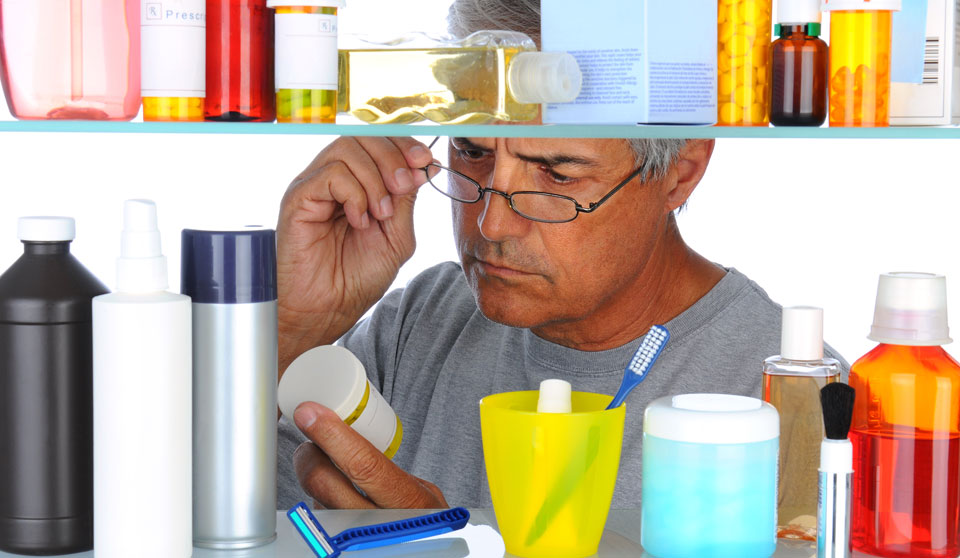
Got Drugs? April 30th is National Take Back Day, a day to bring awareness to proper disposal of prescription medications. Did you know…
“2.8 million pounds of prescription medications go unused by US Consumers.” ~King Pharmaceuticals, Inc
Prescription drugs can be lifesavers for many people with medical conditions. But, there often comes a time when you have unused medications around the house. This can be due to changes in your prescription, the medication being out of date, or you no longer needing them. Rather than leave them laying around, it is important to properly dispose of them.
Why Dispose of Unused Medications?
Besides causing excess clutter in your pillbox, pill organizer, or medicine cabinet, unused medication can lead to accidental exposure by a child or family member, and could also encourage the misuse of certain drugs. Don’t take the risk.
It is tempting to flush medications down the toilet or dispose of them in the trash, but that is not the way to go. Medications can be taken out of the trash and misused. Some have suggested mixing the drugs with coffee grounds or kitty litter and then throwing in the trash, but this does not prevent them from being taken out and cleaned up. This is especially dangerous for desirable controlled substances such as OxyContin and highly addictive drugs.
Improper Disposal Can Harm Children and Pets
“Each year in the United States, more than 1 million poison exposures among children younger than six years of age are reported to the American Association of Poison Control Centers.” ~UpToDate
Human medications are also one of the leading causes of pet poisoning and usually happen due to throwing meds in the trash. This also puts curious children at risk. Crushing pills to throw them away is risky too for the handler and anyone that could be exposed.
Properly dispose of your medications today. It doesn’t take long.
How To Properly Dispose of Your Medication
A great way to get rid of unwanted medications is through a local take-back program. You can check with your community center or law enforcement centers to see when a program is taking place.
“Medicine take-back programs are a good way to safely dispose of most types of unneeded medicines. The U.S. Drug Enforcement Administration (DEA) periodically hosts National Prescription Drug Take-Back events where collection sites are set up in communities nationwide for safe disposal of prescription drugs.” ~FDA.gov
The Drug Enforcement Administration can also help you find a collection center to properly dispose of prescription medications. You can use the Controlled Substance Public Disposal Locations search to find your most convenient location. You simply put in your zip code or city and state, the distance you are willing to travel, and click search.
Use the DEA’s Search Feature Here
If you do not obtain a location close to you, you may also try contacting local pharmacies or nursing homes to see how they are disposing of medications. Mail-back programs are another option if you do not have a local take-back program.
April 30th is National Take Back Day dedicated to awareness of proper disposal for unused medications. Learn more and find out how you can participate through the DEA Here.
Make the extra effort to dispose of your medications properly and rest knowing that you have not put anyone at risk. You will be protecting the environment too.
“Returning your unwanted medicines to a take-back program is the safest and most environmentally protective way to dispose of unused medication.” ~TakeBackYourMeds.org
Be sure to save the poison helpline number in case of an emergency.
Poison Help at 1-800-222-1222 is free to callers and is answered by clinicians who have been specially trained in toxicology and poison prevention. The line is answered 24 hours a day, seven days a week. It is a resource for the public and healthcare practitioners alike. ~DisposeMyMeds.org
Join the initiative and share this post to bring awareness to this important issue.
